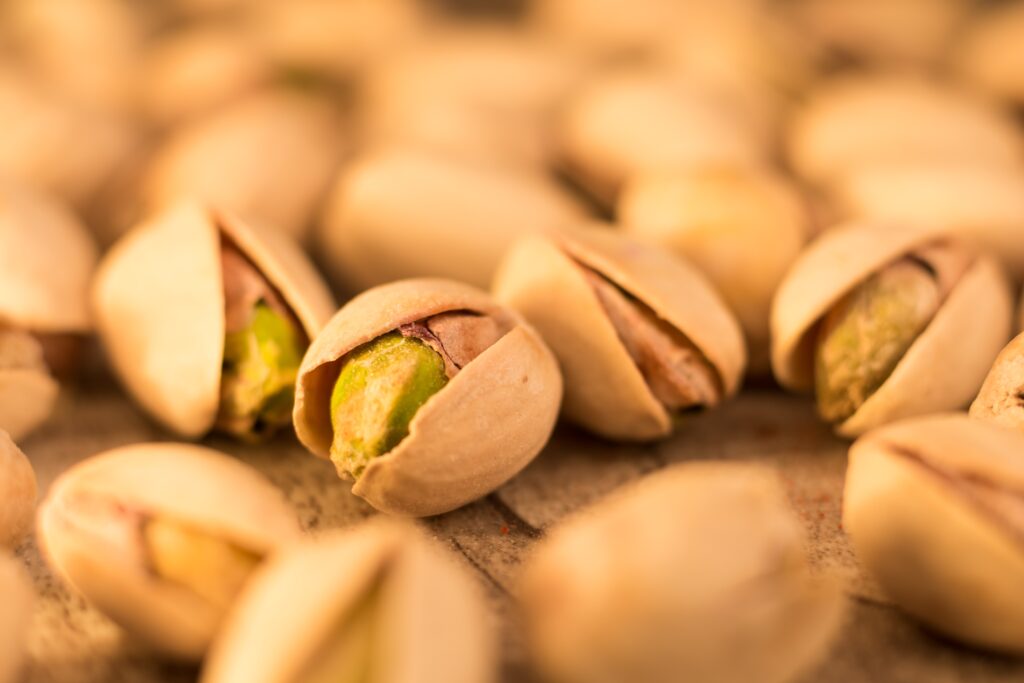Melatonin is best known for its role in regulating sleep. However, it is also connected to energy levels, as it aids cellular mitochondrial health. Boosting your melatonin will therefore result in a better night’s sleep and better daytime vitality.
Unfortunately, melatonin production decreases with age.[1] Supplemental melatonin is an alternative way to get the levels you need, but many pills and gummies contain doses that may result in daytime drowsiness and may interact with other medications you are taking, such as diabetes and blood pressure medications. That’s why natural forms of melatonin are often preferred.
You can increase your body’s melatonin through your diet. Melatonin-rich foods deliver a lower dose of the hormone with fewer side effects and interactions as compared to supplements. Of course, some foods contain more melatonin than others.
The highest dose of natural melatonin is found in pistachios, which offer an astounding 233,000 nanograms of melatonin per gram of the nut.[2] This is forty times the next-highest melatonin-rich food, mushrooms.
Other foods naturally rich in melatonin include black pepper, red rice, black rice, mustard seeds, olive oil, cranberries, almonds, strawberries, and flaxseeds. Even brewed coffee and red wine offer a dose of melatonin.
Additionally, milk, goji berries, and tart cherries offer natural melatonin. From your digestive system, the melatonin moves into your blood, where it can be transported all over your body.
Nearly everyone suffers from short-term sleep disruption at some point, whether it’s caused by jet lag or shift work. However, some people suffer from long-term sleep disorders, which result in severe fatigue and decline in quality of life. Both of these situations can be aided by increasing your consumption of naturally rich melatonin-containing foods, but it should not be relied upon as a substitute for medical intervention.
If you have an underlying issue, such as sleep apnea, you will need to refer to your doctor for proper medical treatment, which can involve surgery or sleep devices. Once that has been resolved, altering your diet to incorporate more melatonin-rich foods will further bolster your sleep and energy levels.
Lack of sleep, or high-quality sleep, has been linked to mood disorders, weight gain, and depression. This may sound ominous, but on the flip side of that is the fact that treating a sleep disorder can improve each of these symptoms as well. All the more reason to start eating foods that aid sleep.
An additional benefit to eating foods rich in melatonin rather than simply taking a melatonin supplement is that all of these foods provide other types of nutrition, such as fiber, antioxidants, and good fats. You won’t get that with a supplement. These added benefits can aid your digestion and absorption so that you get the most out of the melatonin-rich foods you eat.
- Mayo Clinic Staff, “Melatonin,” March 3, 2021
- Steven Gundry, The Energy Paradox, 2021, ISBN 978-0-06-300573-0
Story Credit: Katharine Coggeshall
Photo by Theo Crazzolara on Unsplash

